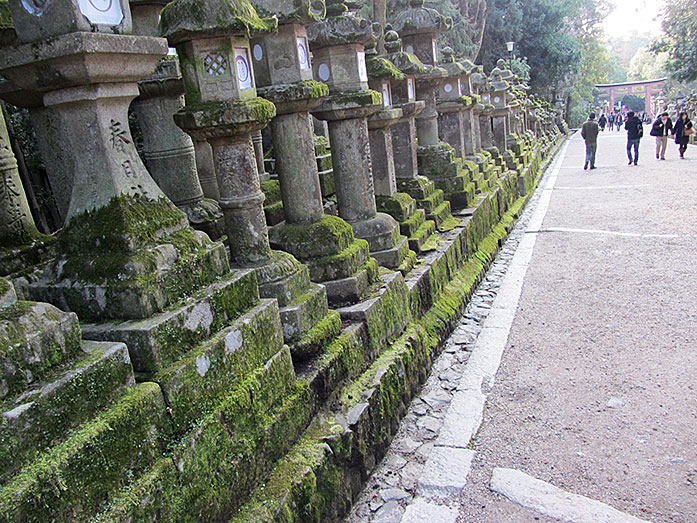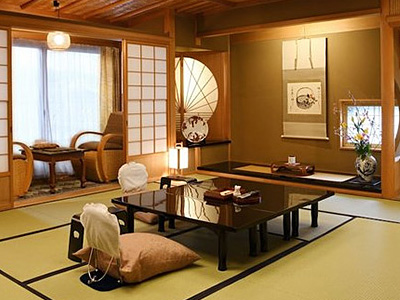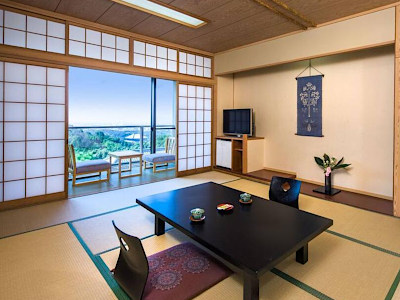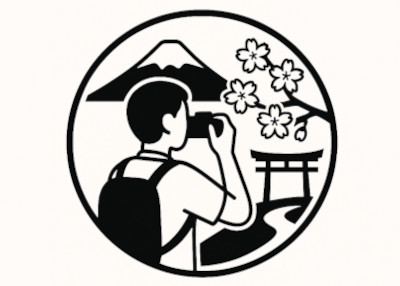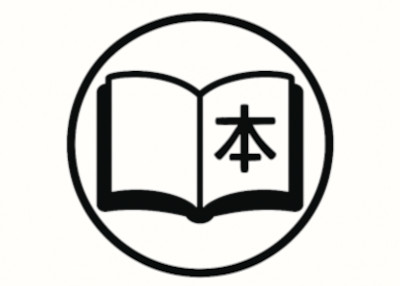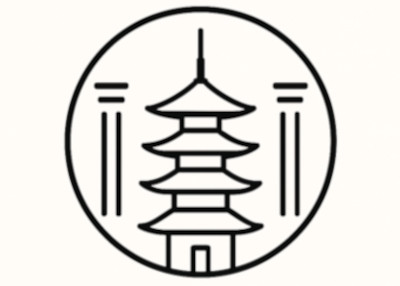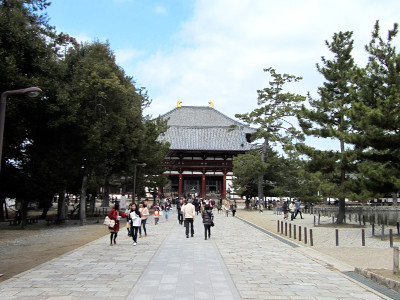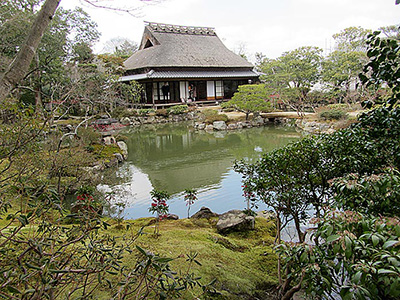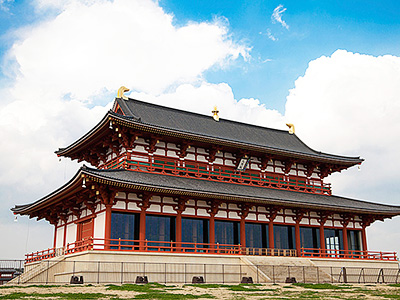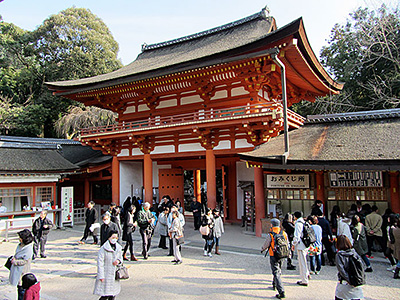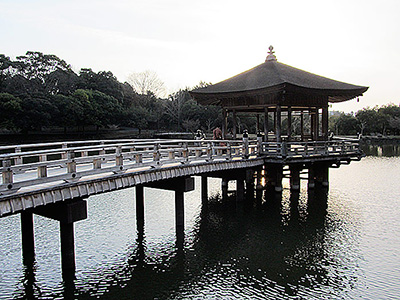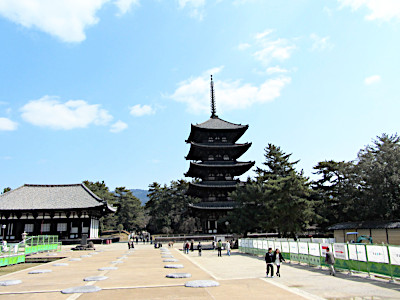Path to Kasuga Taisha in Nara
This post can contain affiliate links, which means that we may receive a small commission if you make a purchase using these links.
Facts & Figures
The long pathway leading up to the Kasuga Taisha Shrine (Kasuga Grand Shrine) in Nara is lined with more than 2000 stone lanterns (Toro). The long walk and unique atmopshere gave the visitors enough time to prepare for worship at the shrine.
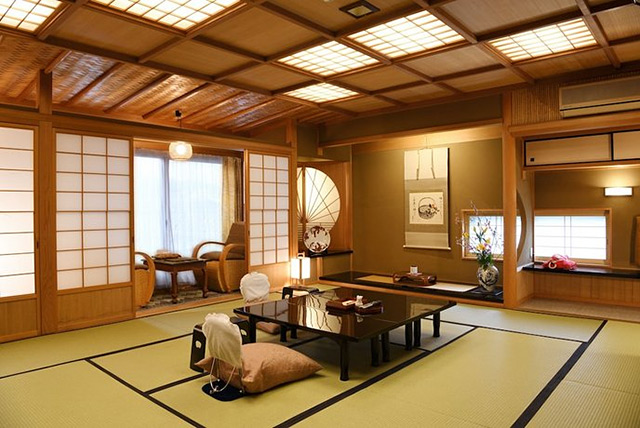 Experience the Ultimate Japanese Hospitality at a Nara Ryokan.
Experience the Ultimate Japanese Hospitality at a Nara Ryokan.
Find Your Perfect Ryokan Now >
Every year on the 14th of February and on the 15th of August all lanterns are lit up. Don't miss these fascinating events.
- Main shrine (Hon-den):
- Opening Hours - 6:00 am to 6:00 pm (April to September)
- Opening Hours - 6:30 am to 5:30 pm (rest of the year)
- Admission fee - 500 yen (inner grounds), free (outer grounds)
- Treasury Hall (Houmotsu-den):
- Opening Hours - 9:00 am to 4:30 pm (December to February)
- Opening Hours - 9:00 am to 5:00 pm (rest of the year)
- Closed - on Mondays from December to February
- Admission fee - 400 yen
- Botanical Garden (Shin-en):
- Opening Hours - 9:00 am to 4:30 pm (December to February)
- Opening Hours - 9:00 am to 5:00 pm (rest of the year)
- Closed - on Mondays from December to February
- Admission fee - 500 yen
My tips for local activities
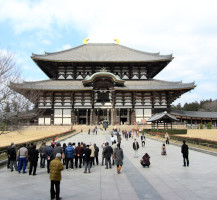
How about exploring the highlights and hidden gems of the fascinating city Nara with a local guide? The personalized tour by our partner GetYourGuide can take between 2 - 6 hours. For more details check out this page >
History
The stone lanterns were contributed over the centuries by samurai warriors, wealthy merchants, aristocracy and commoners.
Location
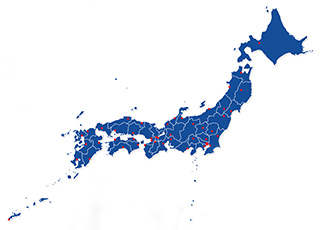
Pathway to the Kasuga Taisha Shrine is located in the eastern part of the Nara Park.
How to get to Kasuga Taisha Shrine?
- 20min from Kintetsu Nara Station served by Nara and Kyoto Line
- 40min from JR Nara Station served by Yamatoji, Nara, Gakkentoshi, Sakurai Line
- 8min from Kintetsu Nara Station by bus to Kasuga Taisha Honden stop
Sightseeing spots
along the path:
Deer Park - deer are considered as sacred messengers of the Shinto gods, you will see many of them along the path
Temizuya (water fountain and basin) - a Shinto cleansing water basin, before you enter the shrine wash your mouth, hands and face
Honden (Main Hall) - the Honden is formed by 4 shrines standing in a row, enshrined are the 4 gods protecting the Fujiwara family
Kasuga Taisha Shinen Manyo Botanical Garden - appr. 250 different kind of plants, like the wisteria flower, are on display
Treasury House - is housing the different shrine's relics
Kasuga Primeval Forest - no access for the public, located behind the Kasuga Taisha Shrine
auxiliary shrines - these small or miniature shrines, like Wakamiya Shrine or Meoto Daikokusha, are worth a visit, do not miss the tour of the "twelve lucky gods"
Festival & Events (dates can change without notice)
February
Setsubun Mantoro (2nd - 4th)
This is one of the best times to visit Kasuga Taisha. All of the 3000 shrine's lanterns are lit at once on the 3rd of February between 6:30 pm and 9:00 pm. This event has a history of more than 800 years.
March
Kasuga Matsuri (Monkey Festival) (13th)
This festival features gagaku ("elegant dance", performed since centuries at the Imperial court) and bugaku (classical Japanese dance of Chinese origin) dance performances.
August
Obon Mantoro (14th - 15th)
Similar to the Setsubun Mantoro in February all of the 3000 shrine's lanterns are lit at once between 6:30 pm and 9:00 pm.

